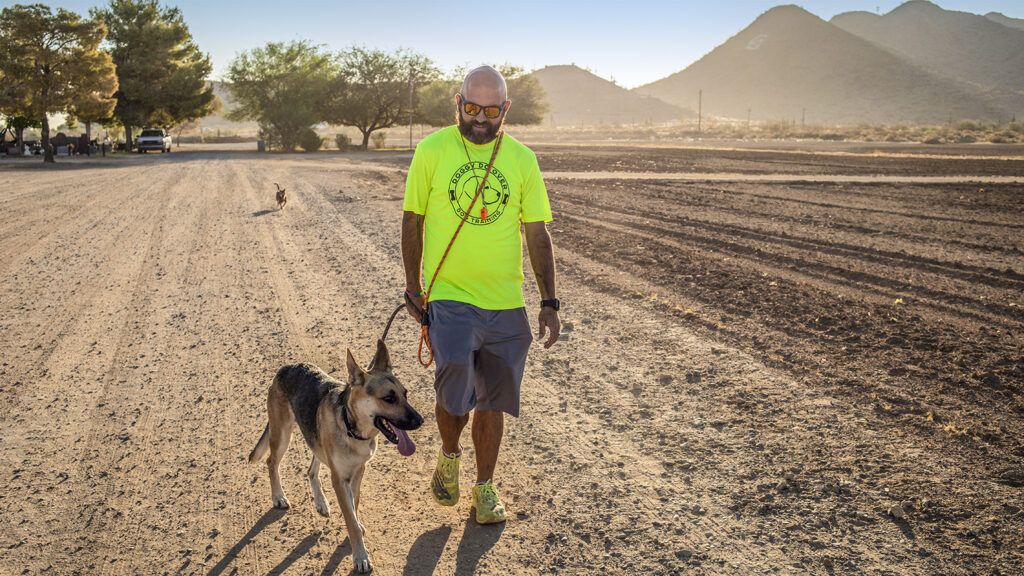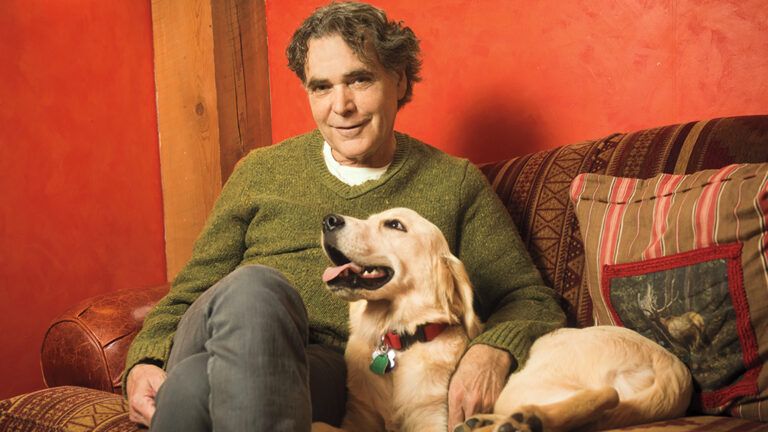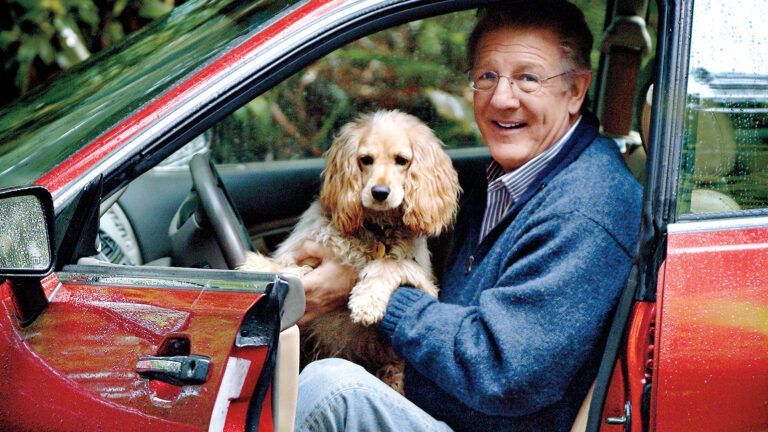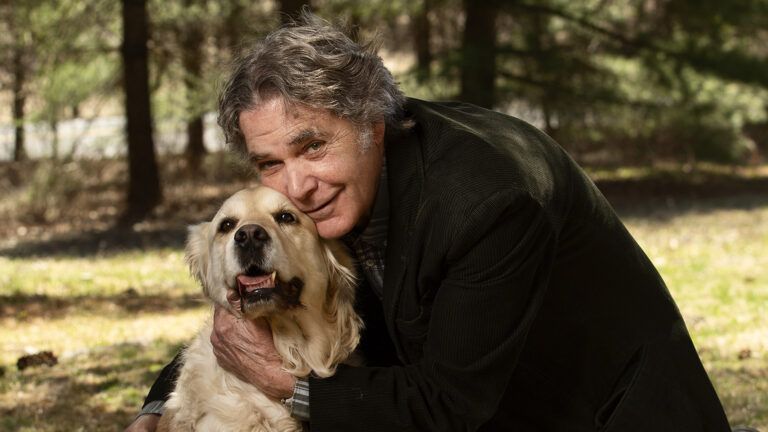Chuck Avery of Casa Grande, Arizona, wakes up at 4:30 A.M. and takes the first five of 16 pills in his daily regimen. If he’s up longer than an hour without his medication, he won’t be able to breathe.
He starts his day much earlier than his wife, Amanda, and their seven rescue dogs. He needs to make his way to the animal shelter where he volunteers, and he moves more slowly than most people. Before he heads out, he checks on Maverick, a Lab-chow mix who was almost euthanized because of his aggressive behavior. Chuck has been working with him at home for about a month now and has already seen a vast improvement. “See you later, buddy,” he says to Maverick, who goes back to sleep in his crate.
According to his doctors, Chuck shouldn’t have even made it this far. In August 2015, he broke a tooth and his dentist noticed a mass in the back of Chuck’s mouth. He told him to see a doctor immediately. Chuck was diagnosed with stage four chronic lymphocytic leukemia and started chemotherapy. “At the time, I weighed 350 pounds, so I thought my fatigue and shortness of breath were because of my weight,” he says. “Thank God I broke my tooth.”
Doctors gave Chuck, 33 at the time, five years to live. In 2017 he was diagnosed with myasthenia gravis, a neuromuscular disorder that causes muscle weakness, extreme fatigue and shortness of breath, among other symptoms. Depression set in. His life had been reduced to chemo and doctors’ appointments, medications and grim prognoses. He felt as if he was just waiting to die.
Chuck had a lot of time to think during his chemo sessions. He found himself telling one of the oncology nurses about living in Michigan in his early twenties, where he trained dogs for both behavioral issues and dock diving. “I loved it,” he says. “It got me thinking about how happy I was around dogs.”
In March 2017, Chuck began volunteering as a dog walker at a local shelter. He held the leash in one hand and his oxygen tank in the other. Being with dogs again got him out of the house and focused on something other than his illnesses. It gave him something to look forward to. Then one day the shelter euthanized a dog it had labeled as aggressive. “I couldn’t believe they put him down,” he says. “I knew that I could have rehabilitated that dog and it broke my heart.”
Chuck couldn’t bear the thought of another dog being euthanized unnecessarily. So he promised to train the behaviorally challenged dogs at the shelter. “There was no question in my mind. I wanted to help as many dogs find homes as I could,” he says. “But I also wanted to find something for me. I needed a purpose.”
Six mornings a week, Chuck trains dogs with aggression and other behavioral issues at the shelter. He works with them for four or five hours, then drives home to take a two-hour nap before teaching group and individual training sessions through his business, Doggie Do-Over, which was launched last summer. Chuck and his business partner, Karen, offer services to people who can’t handle their dogs’ dominating behavior. “People don’t want to surrender their dogs,” he says. “They just need help leading.” His schedule is packed, but the long days don’t faze him. In fact, they make him feel better. “I’m connected to these dogs. They trust me, and it confirms that I’m doing the right thing,” he says. “Working together helps both of us.”
A big part of that work is what Chuck calls “focused walking,” in which he blocks out everything but the dog he is training and the next step he is taking. “When you’re only thinking about the task at hand and putting one foot in front of the other, nothing else matters,” he explains. “It calms me and, in turn, the dog.”
Even on the days that he needs to use a cane for extra support, Chuck, now a healthy 180 pounds, logs a solid 8 to 10 miles. And that’s before he gets home to his own dogs, including Maverick, who has been one of his toughest cases to date. At first, Maverick busted out of his kennel, showed aggression toward Chuck and Amanda’s other dogs, and even bit Chuck. “I wasn’t sure if I had made the right decision bringing Maverick home,” Chuck admits. “But he deserved another chance, and he’s a different dog now.” The couple’s chihuahua-dachshund mix, Chip, and border collie, Maggie, keep Maverick balanced by walking next to him and showing him how to stay calm while other people and dogs pass by.
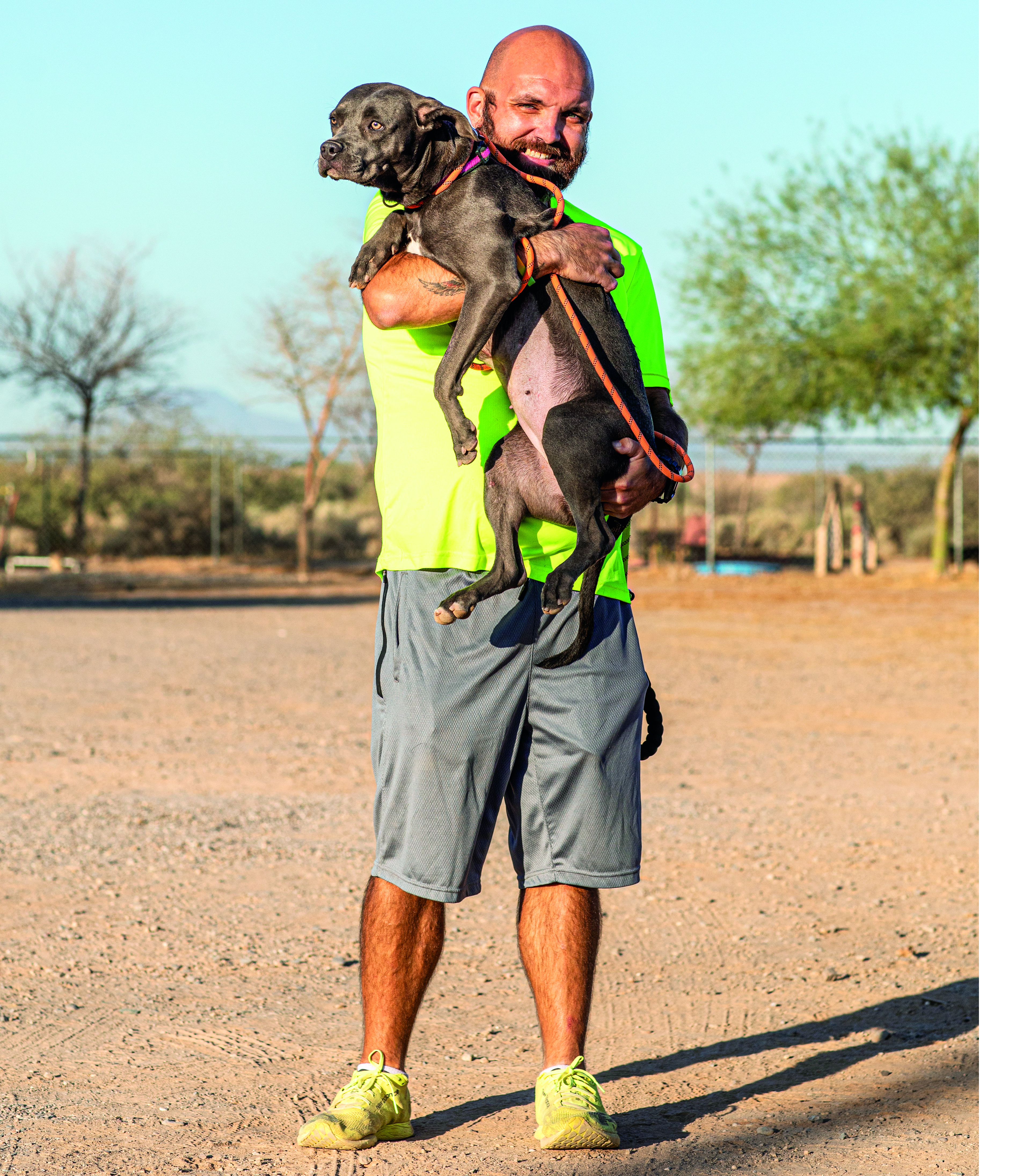
Chuck arrives at the shelter by 6 A.M. He’s greeted by excited whines and wagging tails. He strolls down the row of kennels and says hello to his friends, stopping at the end of the row. A yellow Labrador stares back at him, eager to get out. They’ve been focused walking and working on self-control for weeks now, and Chuck is confident the dog will get adopted soon. He opens the kennel, wasting no time; there are plenty of others waiting their turn to show they can change too.
“Walking into this shelter every day has been the best thing for me,” Chuck says. “Sure, I got dealt a difficult hand, but I chose to do something about it. These dogs don’t have a choice. So I’m giving them one.”
In the last year, more than 300 dogs have gone through Chuck’s training program, in the shelter or through Doggie Do-Over. Almost every one of them has been adopted.
August 25, 2020, marked the five-year anniversary of Chuck’s cancer diagnosis. “Every four weeks, I get a white blood cell infusion that takes seven hours,” he says. “But I haven’t needed to use my oxygen tank for eight months now.”
Around 11 A.M. Chuck leaves the shelter to take a break before his afternoon sessions. He doesn’t even look tired. “See you tomorrow, guys,” he says, reaching into a few of the kennels for a farewell pat. “I get to hang out with dogs all day. What’s better than that?”
It’s clear the dogs aren’t the only ones getting a do-over.
For more inspiring animal stories, subscribe to All Creatures magazine.
